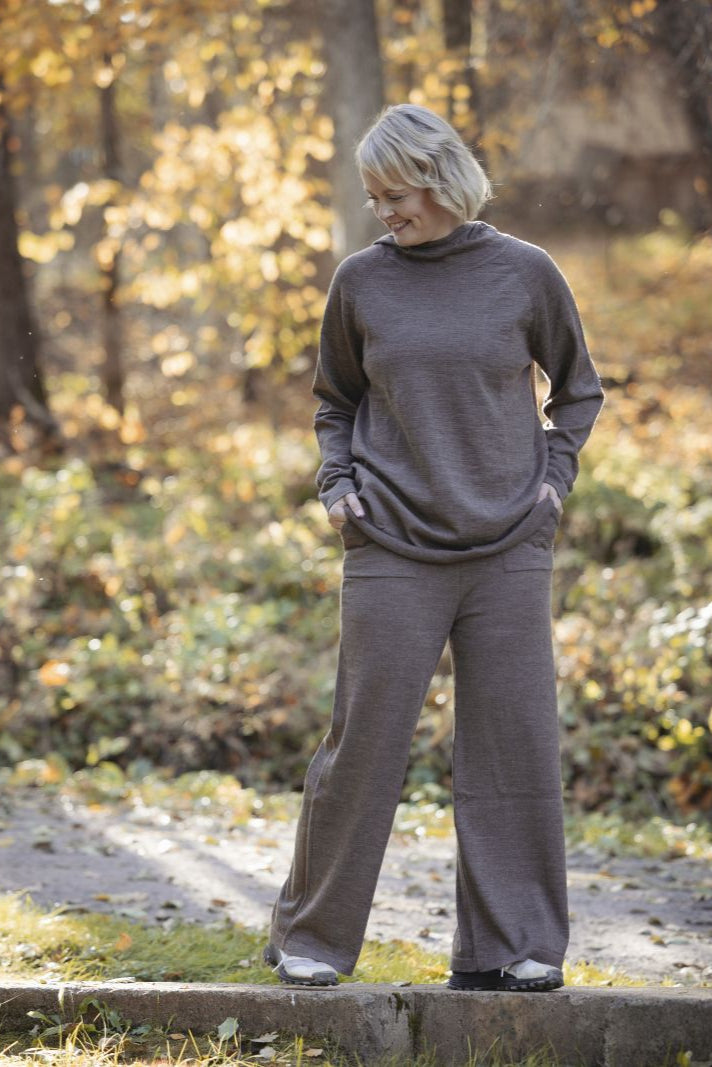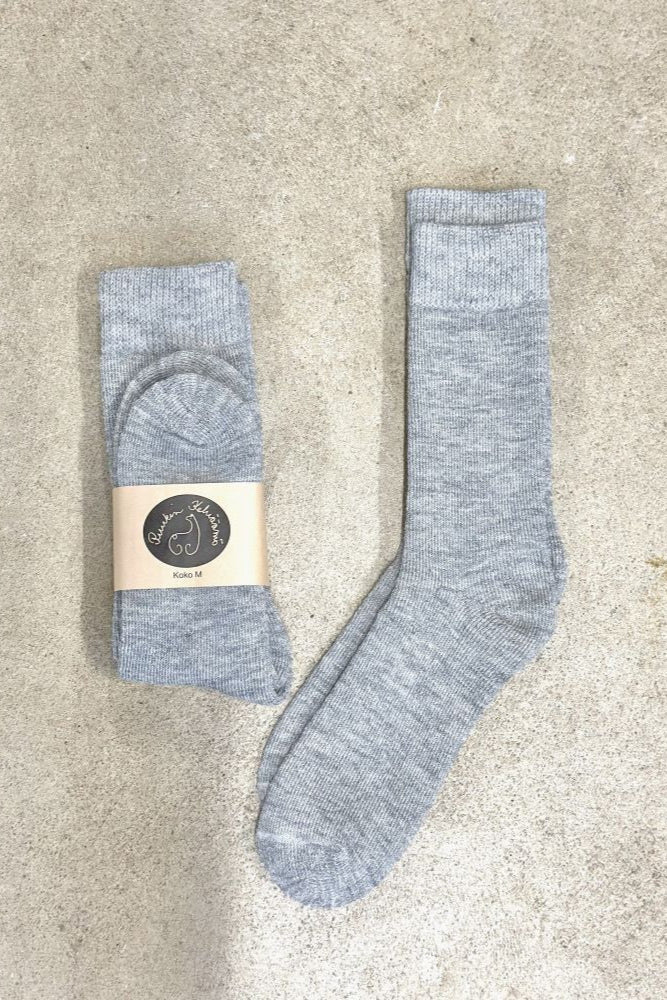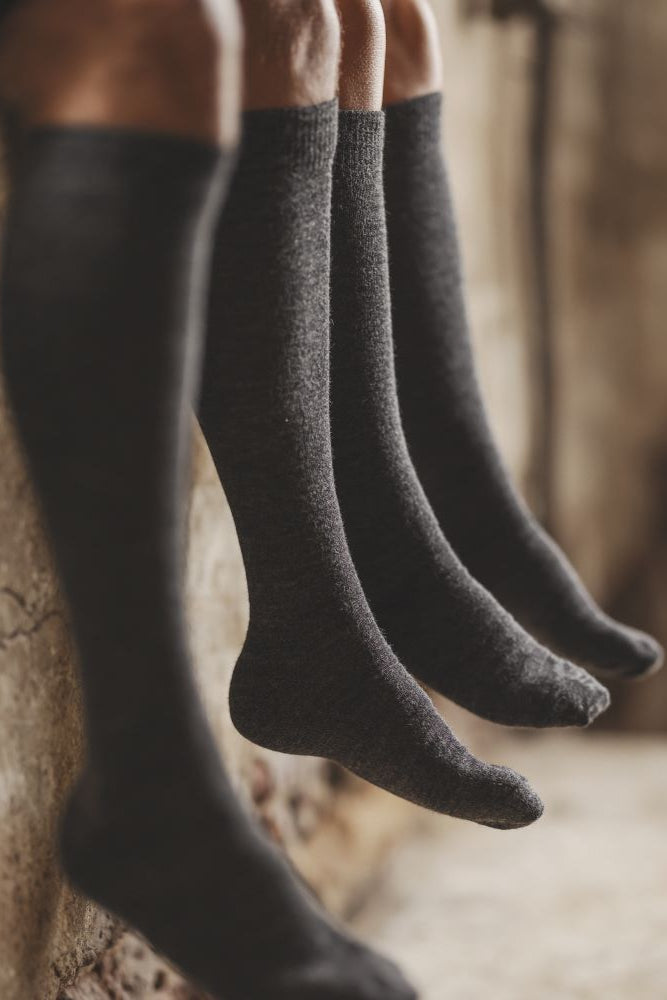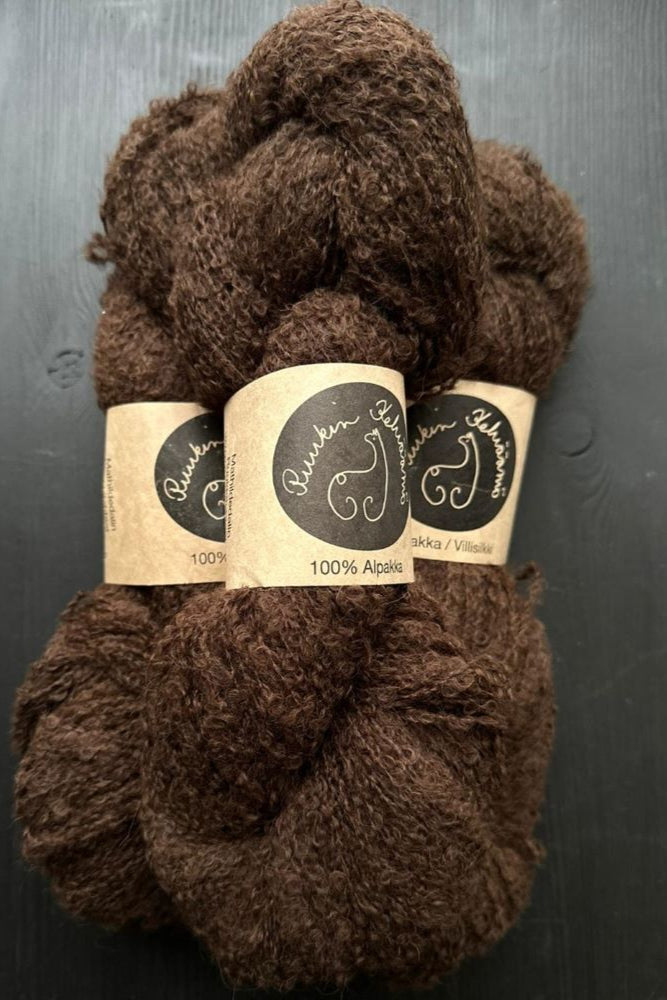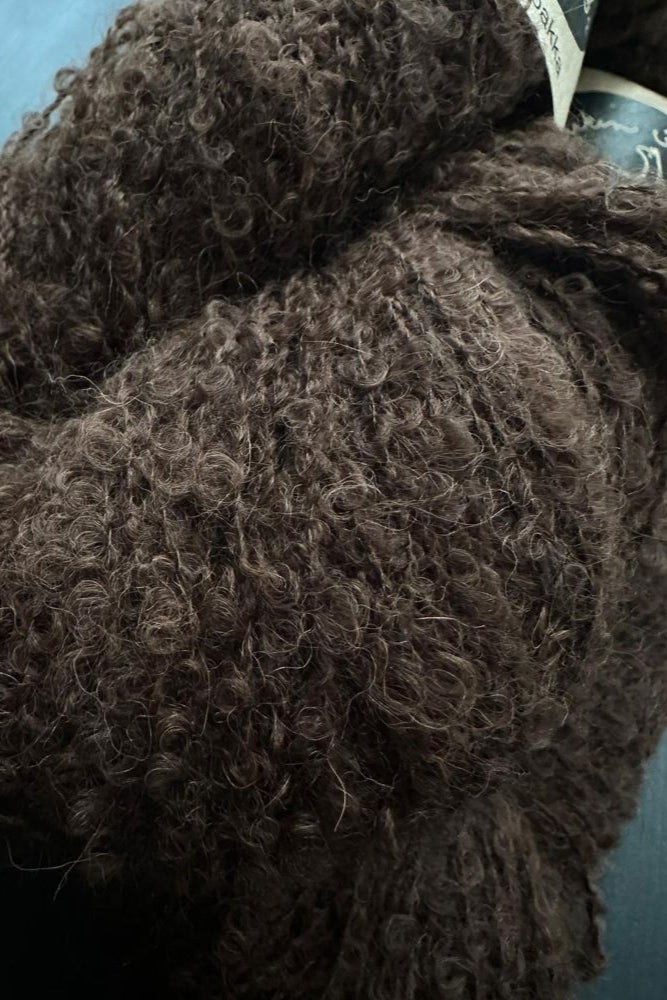
Merino wool vs. Alpaca Royal
How does a Royal quality alpaca product compare to a merino wool product?
Alpaca and Merino are both natural fibers and top-class materials that are rapidly conquering the world. The advantage of alpaca wool (Alpaca Royal) is that the fine alpaca fibers feel softer against the skin and are clearly lighter in weight. This is exactly what gives the luxurious feel of clothes made from Royal-level (≤ 18 µm) alpaca.
 Picture 1. Alpacas at Tienda Molino's farm in the Netherlands
Picture 1. Alpacas at Tienda Molino's farm in the Netherlands
 Figure 2. Merino wool sheep in Australia
Figure 2. Merino wool sheep in Australia
Is Alpaca wool warmer than Merino wool? Yes
All wool fibers work well as insulation, even when wet, because they are wick-like along their entire length. Small air pockets remain between the fibers thanks to the wicks. The heat of your body warms the air in the air pockets and thus the woolen sweater feels warm.
The difference between merino wool and alpaca wool is in the internal structure of the fiber. The structure of alpaca fiber is hollow, so there are also warming air pockets in the core of the fiber. On the other hand, the insulation of merino wool is based only on the air remaining between the different fibers. Therefore, merino wool is also heavier than alpaca wool.
Alpaca wool is naturally temperature-regulating, due to the hollowness and softness of the fiber. Alpaca wool clothes store the heat produced by your body both inside and between the fibers. An alpaca sweater may seem cool at first touch. But when you put on an alpaca sweater, the air pockets warm up quickly and protect you from the cold. This also works the other way around, meaning it prevents you from overheating in warm weather.
 Figure 3. Close-up of alpaca wool. The hollow and wick-like structure of the fiber keeps the alpaca warm in the cold mountains of Peru. (Photo: International Alpaca Association)
Figure 3. Close-up of alpaca wool. The hollow and wick-like structure of the fiber keeps the alpaca warm in the cold mountains of Peru. (Photo: International Alpaca Association)
Is Alpaca wool more itchy than Merino wool? Yes and no
The lack of stinging cannot be generalized. It totally depends on the quality of the fiber. If we talk about alpaca in general, it can be very prickly, as can other wool fibers, especially sheep's wool fibers.
However, sweaters made of Royal-level (≤ 18 µm) alpaca fiber (Ruukki Kehräämö Alpaca Royal) do not feel stinging against the skin. That's why even people for whom merino wool products sting can usually wear the Alpaca Royal sweater directly on bare skin.
Factors affecting the softness/tingling of wool fibers:
1. Lanolin content
Lanolin is a wax that occurs naturally in sheep's wool and is produced by the sheep's sebaceous glands. It acts as a protective barrier and moisturizer. Although it is used in some skin care products, it is an allergen for some people. Unlike merino, alpaca wool has a naturally high moisture resistance, which is why it doesn't need lanolin to keep its wool protected. Being lanolin-free, less bacteria and dust stick to alpaca wool, which is why Alpaca wool is also hypoallergenic and antibacterial.
2. Fiber thickness
Not all Alpaca wool is equally soft. The same applies to merino wool. The thickness of the fiber can determine whether it feels tingly or soft against the skin. Wool fibers with a thick diameter feel rough, while very fine fibers with a diameter of less than 20 microns feel soft against the skin (cf. Alpaca royal ≤ 18 µm vs. Baby Alpaca ≤ 22 µm).
3. Smoothness of fibers
Wool fibers have microscopic scales that protrude from the surface of the fiber and cause a stinging sensation. The smaller and more even the scales are, the smoother the fiber is.
The scales of the alpaca fibers are small and lay flat against the surface of the fiber, so high-quality Alpaca wool (Alpaca Royal) does not cause stinging. Merino's overlapping scales are protruding and very visible. Like sheep fibers, it is coated with lanolin. All this leads to the typical itch of a sweater.
The merino wool used in clothing is mainly chemically treated to remove lanolin and fiber scales (Chlorine-Hercosett, Superwash, Ecowash), which is why it feels much softer and less itchy than untreated sheep's wool, but the treatment is toxic and releases microplastics into the environment, both in all the different stages of production and also in use, wearing and washing by the consumer. However, alpaca wool does not need any special treatment: it is naturally super soft, which makes it more pleasant on the skin.
Is Alpaca wool more durable than Merino wool? Yes
Alpaca fiber is very flexible and can withstand more pressure and tension than merino wool. Studies show that the tensile strength of alpaca fiber is up to 50N/ktex, which enables the production of even thin clothes that can withstand heavy wear. Merino fiber, on the other hand, withstands considerably less pressure, 30-40 N/ktex.
 Figure 4. Merino wool fiber in a microscopic image
Figure 4. Merino wool fiber in a microscopic image
 Figure 5. Alpaca wool fiber in a microscopic image
Figure 5. Alpaca wool fiber in a microscopic image
Is Alpaca wool more breathable than Merino wool? Yes
Breathability refers to the wool's ability to move moisture away from the skin when you sweat. This basic feature repels odors and increases user comfort. Both Merino wool and Alpaca wool effectively absorb moisture and transport it to the outside of your garment so it evaporates. However, alpaca wool has been found to be superior in terms of breathability compared to other natural fibers and modern technical fibers.
Does alpaca wool have better water retention than merino wool? Yes
Alpaca wool is especially famous for its water resistance. Alpaca wool binds moisture only 8% of its weight. Merino wool can bind moisture up to 30% of its weight. This property of alpaca wool makes it a superior insulator and dries faster than merino wool.
Is an alpaca product a more environmentally friendly choice than a merino product? Yes
Alpakka is an environmentally friendly guy. Alpaca breeding is never based on intensive production. Unlike goat and sheep breeds, alpaca does not destroy vegetation when grazing, but on the contrary improves the vegetation's survival potential. During their entire life cycle, alpaca and products made from alpaca wool use very little water. This super fine fiber is never treated with chemical treatments and synthetic processes. At Ruukkin Kehräämö, we don't even use dyes, but rely on nature's own color palette.
Merino wool, on the other hand, goes through a non-toxic "superwash" treatment to make it soft, washable and comfortable. Merino wool is also often mixed with other synthetic fibers such as nylon to enhance its luxurious feel, which increases microplastic pollution in the environment.
Are alpaca products valuable? Yes and no
We believe that the high price of Ruukki Kehräämö's Alpaca Royal sweater is not expensive when we remember that it is the most luxurious wool product on the market. It is durable, stays good year after year and is 100% recyclable when untreated. According to our customers, our Alpaca Royal sweaters are definitely worth the investment.
Royal quality alpaca fiber (Ruukki Kehräämö Alpaca Royal) does not itch, is warm and does not need to be chemically treated. Therefore, its natural properties remain unchanged even in the final product and it works better than merino wool and other types of sheep's wool.
Because of this, Royal level alpaca fiber is perfectly suited as a material for smart business, everyday luxury, outdoor clothing, hiking socks and even underwear products.
Alpacas have evolved naturally over thousands of years in harsh conditions on high mountain plateaus, creating the perfect fiber for knitwear to help you stay protected in all conditions.
In ancient times, the use of alpaca wool was reserved only for royalty. Its exponentially fine qualities and vitality make it the goddess of the knitting industry. In Ruukki's Kehräämö online store and shop, you can check out luxury class alpaca knitwear.



